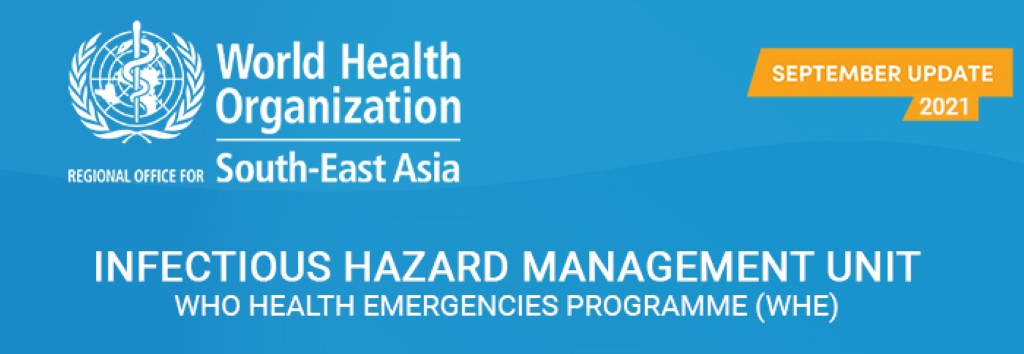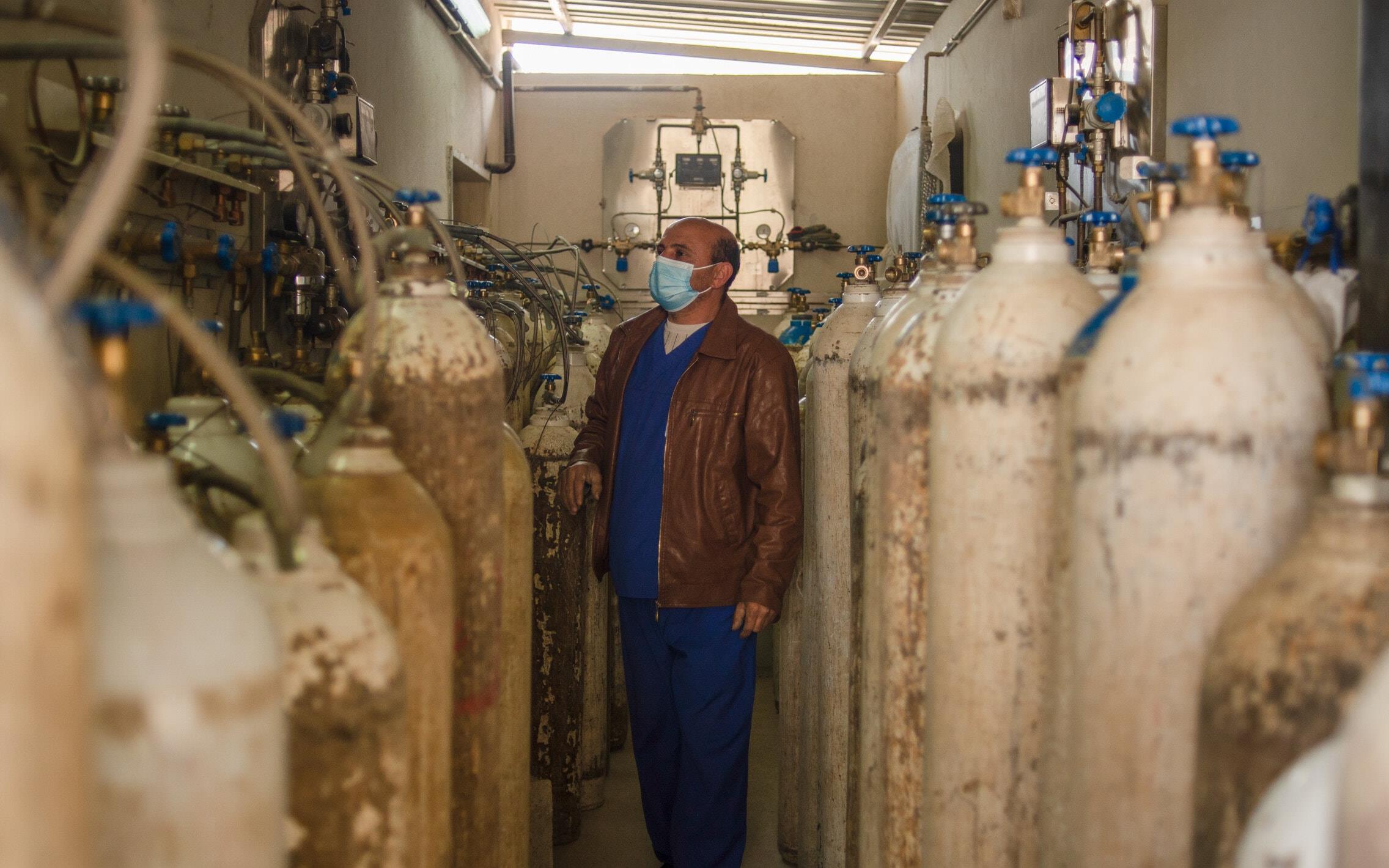
IN THE SPOTLIGHT

Specially designed survey to estimate oxygen requirement for COVID-19 patients
To support facility level planning and management of oxygen supplies, the Health Emergencies Programme (WHE) of the WHO's Regional office for South-East Asia (SEARO) and the Integrated Management of Adult and Adolescent Illness (IMAI) Alliance
jointly developed the SEARO-IMAI Oxygen Survey Tool - Guide. The tool was finalized to provide clarity on these issues through a scientific process and is based on previous IMAI tools and experiences gained from resource constrained settings across
the globe, making it relevant for the region. Read more
COVID-19 PANDEMIC RESPONSE:
HEALTH OPERATIONS AND TECHNICAL SUPPORT
A pool of trainers has been prepared to provide virtual and in-country support for country training. The Training of Trainers (ToT) from SEAR Member States entailed conducting clinical management of severe acute respiratory infections (SARI) including those due to COVID-19 in non-ICU settings in SEAR with a view to building a regional team of trainers who could then be used/deployed for conducting training at the national level or mobilized for training in other countries.
Read more
Disproportionate impact of the pandemic on women of reproductive age, particularly pregnant mothers and newborns has been a concern. As the pandemic advanced in Cox’s Bazar, a challenge was to safeguard interests of vulnerable groups, including pregnant women. Against this background, since April 2020, Yale university has been supporting a large team of clinicians at the Cox’s Bazar, with surge management, coordination, clinical standards of care and several weekly clinical case conferences.
Read more
As part of WHO supported laboratory strengthening activities during the ongoing COVID-19 pandemic, a series of steps were taken to contribute to policy-making, improve diagnostic capacity and bio-risk management, provide guidance to Member Countries, undertake regional networking and deploy relevant human resources and laboratory supplies, where required.
Read more
INFECTIOUS HAZARD MANAGEMENT (IHM)
Seasonal, pandemic and zoonotic influenza activities
The Virology laboratory at the Royal Centre for Disease Control (RCDC) under the Ministry of Health of Bhutan serves as the National reference laboratory for Influenza surveillance. RCDC expressed its interest to become a National Influenza Centre (NIC), designated by the Ministry of Health and recognized by WHO in 2018. Laboratory experts have since been involved in the assessment for Member Countries providing peripheral technical support.
Read more
Making recommendations of the fifty-eigth World Health Assembly (WHA) the foundation for operationalization and building on subsequent WHA recommendations and using the Pandemic Influenza Preparedness (PIP) framework and Global Influenza Strategy for 2019-2030, WHO’s SEARO embarked on strengthening influenza surveillance and response network and capacity in the region. In this regard, new activities were proposed for a new cooperative agreement submitted to United States Centers for Disease Control and prevention (CDC). Its focus is on enhancing laboratory assisted surveillance to generate evidence for early warning, alerts and response; policy decision-making and vaccine introductions; Influenza pandemic planning and enhancing of pandemic preparedness capacities in Member Countries.
Read more
High threat pathogens
WHO developed a comprehensive framework for combatting Nipah in the South-East Asia Region and ensured availability of evidence-based guidance to Member States for effectively implementing them in the event of an outbreak. Based on global and regional experiences, 10 thematic areas were finalized to develop a roadmap for combatting Nipah virus infections
Read more
Laboratory focal points shared their views on International Health Regulations (IHR) 2005 and its role in improving laboratory as a core component of IHR. They threw light on the Asia Pacific Strategy for Emerging Diseases and Public Health Emergencies (APSED) III (2017) focusing on the laboratory component. Discussions helped identify key strategic areas and action points for developing a roadmap for involving public health laboratory for high threat pathogens in Member States, WHO and WHO Collaborating Centres to address existing challenges and gaps for operationalizing an effective Regional Public Health Laboratory Network. Read more
UPCOMING MEETINGS AND EVENTS
Introduction to Virtual Training Workshop to train a pool of master trainers on laboratory biosafety and bio-risk management in WHO South East Asia Region (SEAR) on 02 November 2021 at 13.30 hrs, IST
FAO-OIE-WHO Global Technical Meeting on Middle East Respiratory Syndrome Coronavirus (MERS-CoV) and Other Emerging Zoonotic Coronaviruses on 15–16 November 2021 from 12:00-17:00 CET
23rd e-Meeting of the WHO Advisory Committee on Variola Virus Research (ACVVR) on 03–04 November 2021
CONTACT US
Dr. Pushpa Ranjan Wijesinghe, Programme Area Manager
Infectious Hazard Management, WHO Regional Office for SEA


